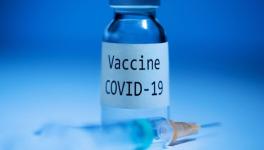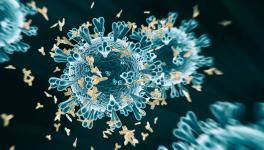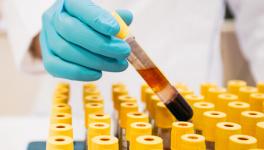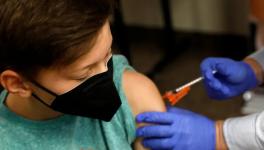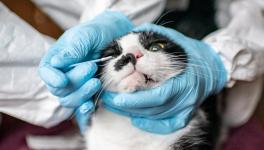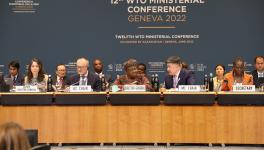COVID-19: Natural Immunity Stronger than Vaccine Protection, Suggests New Study
A major recent concern surrounding the COVID-19 pandemic has been the more contagious Delta variant and how effective are vaccines against it. At this juncture, a new study which surveyed thousands of participants revealed an important aspect. It suggests that people who have been infected with SARS-CoV-2 have greater immunity in comparison to those who took two doses of the Pfizer-BioNTech vaccine.
The study, published in the pre-print server medRxiv, also showed that people who have been infected once are much less likely to contract the Delta variant, develop symptoms, or get hospitalised due to a severe instance of the disease severity in comparison to those who had never been infected but were vaccinated fully.
The results of the study do come with a note of caution, however. Infectious disease experts around the world emphasise that the vaccines effectively protect people against against the coronavirus. Moreover, the results of the study should in no way suggest that if one has been infected they stop following COVID-appropriate behavior.
The study also found that people who contracted COVID-19 previously and who received one dose of the Pfizer-BioNTech vaccine wee highly protected against re-infection, in comparison to those who got the virus once and were un-vaccinated. This finding also triggers a new concern – whether the previously infected people should be given two doses of the vaccine or if a single dose was sufficient.
Scientifically speaking, the good bits about the study were that firstly, it was conducted in Israel, one of the most widely vaccinated countries in the world and that secondly, it has a large dataset – thousands of records of patients within the period of June 1 to August 14. The researchers examined medical records of tens of thousands of people in Israel; details about their infection, symptoms and hospitalisation. Notably, the time period chosen for the study saw the Delta variant as the predominant variant in Israel. The study claims to be the largest observational study about natural and vaccine-provided immunity against the coronavirus.
Charlotte Thålin, an immunologist at the Department of Clinical Sciences, Danderyd Hospital in Sweden, talked about the study in to Science magazine, saying: “To my knowledge, it’s the first time [this] has really been shown in the context of COVID-19.” However Thalin and others did not forget to caution that deliberate infection among people who are unvaccinated will put them at significant risk of contracting severe disease, death or even long Covid.
The study used the database by Maccabi Healthcare Services that has enrolled over 2.5 million people from Israel. Led by Tel Patalon and Sivan Gazit at the KSM Institute of Research and Innovation Centre, Israel, found that people who were never infected and got vaccinated during January-February were six to thirteen times more likely to get infected in June, July and August in comparison to those who were unvaccinated but were previously infected by the coronavirus.
In their analysis of 32,000 patients, they found that the risk of getting symptomatic COVID-19 was 27 times higher in the vaccinated but never-infected population and the risk of getting hospitalised was eight times higher.
The researchers also compared more than 14,000 people who were confirmed to have been infected by the coronavirus and were unvaccinated, and an equal number of people who were previously infected and received one dose of the Pfizer vaccine. They found that the un-vaccinated population was twice likely to get re-infected than those vaccinated with a single dose.
Eric Topol, a scientist-cum-physician at the Scripps Institute, was quoted saying: “We continue to underestimate the importance of natural infection immunity … especially when [infection] is recent. And when you bolster that with one dose of vaccine, you take it to levels you can’t possibly match with any vaccine in the world right now.”
However, there are caveats in the study. Pointing out some of them, Natalie Dean, a biostatistician at the Emory University, US, told Science: “It will be important to see these findings replicated or refuted. The biggest limitation in the study is that testing [for SARS-CoV-2 infection] is still a voluntary thing—it’s not part of the study design.”
Get the latest reports & analysis with people's perspective on Protests, movements & deep analytical videos, discussions of the current affairs in your Telegram app. Subscribe to NewsClick's Telegram channel & get Real-Time updates on stories, as they get published on our website.









